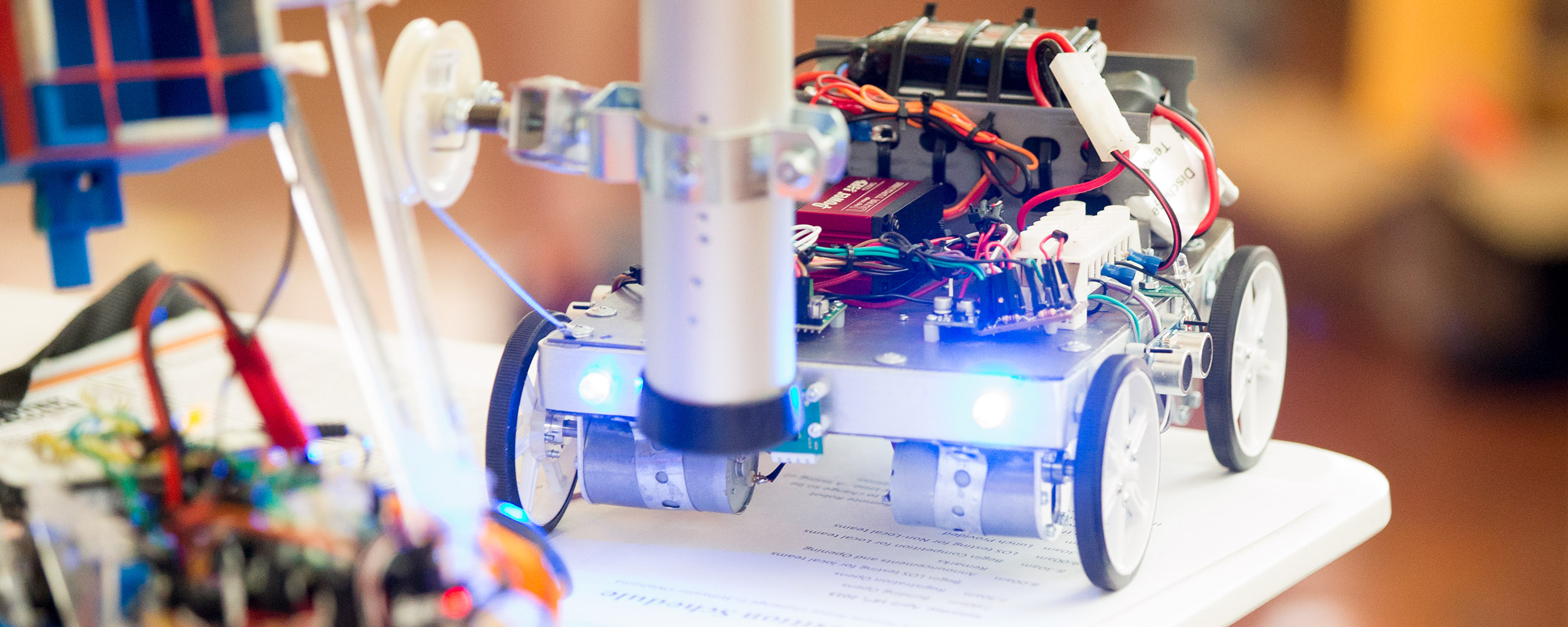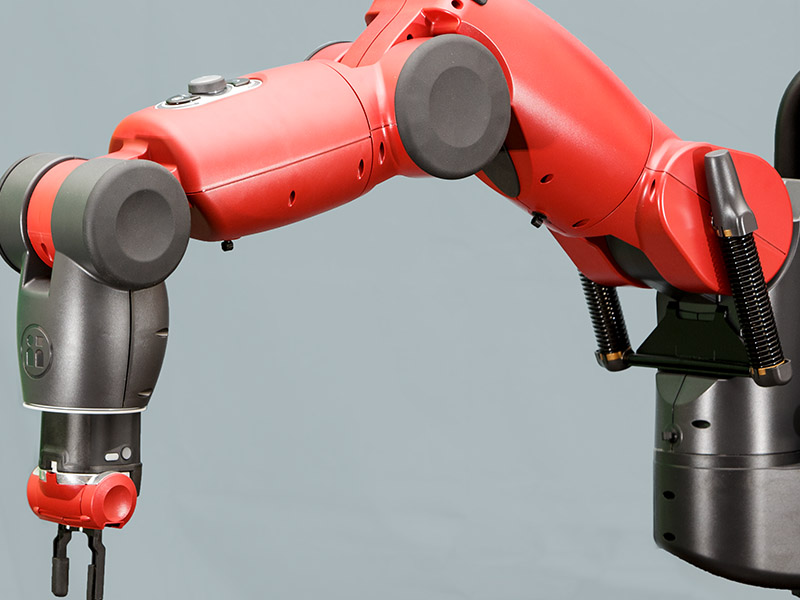
OSU introduces the first Mechatronics and Robotics program in the state
Monday, August 8, 2022
Oklahoma State University’s Bachelor of Science in Engineering Technology (BSET) in Mechatronics and Robotics (MERO) program is the first mechatronics or robotics interdisciplinary four-year degree program in Oklahoma.
The BSET-MERO program will give students experience in electrical, mechanical, control systems and computer engineering technology. Dr. Chulho Yang, MERO program coordinator, said all required courses will use hands-on learning to focus on applied engineering.
“The MERO program is one of a few engineering and engineering technology programs in the country,” Yang said. “This program will provide students with interdisciplinary applied engineering education. Students will learn fundamental and applied concepts of real-world mechatronic and robotic systems, including interface theory, sensing and actuation systems, hardware and software integration, control systems, artificial intelligence, autonomous vehicles, advanced manufacturing and soft robotics.
Over the past few years, mechanical engineering technology and electrical engineering technology students have been offered a mechatronics course. Dr. Young Chang, head of the engineering technology division, said many students left the course to become more interested in mechatronics.
“Students who could not make up their minds between electrical and mechanical disciplines will have the opportunity to taste both disciplines before choosing one,” Chang said.
The demand for engineers with an understanding of MERO is on the rise. Lately, it has been nearly impossible to separate electrical, mechanical and computer technologies.

Automation engineer, electronics design engineer, software engineer and robotics engineer are only a few of the careers available for MERO graduates. Mechatronics engineers typically work with electronics, real-time software, instrumentation and other mechanical or electrical machines. Graduates have the opportunity to work in a variety of jobs across multiple disciplines.
“Graduates of the BSET-MERO program can expect to find employment in the areas of electrical, mechanical, computer and energy,” Yang said. “Since these are the core areas of any industry, the graduates will receive preference over any traditional engineering/engineering technology major,” Yang said.
Dr. Robert Taylor, director of the New Product Development Center, believes the program is a critical component of survival for manufacturing companies in Oklahoma and the nation. The COVID-19 shutdown has emerged jobs in the manufacturing sector. Manufacturing companies, especially rural manufacturers, can no longer find line workers willing to take those jobs.
“Completing mundane or physically taxing manufacturing tasks with machines frees up the existing workforce to keep the lines running,” Taylor said. “The use of automation and robotics will also improve efficiency for the manufacturers thereby improving profitability. The MERO program will provide the skills necessary for new graduates to implement these solutions for Oklahoma companies and enable manufacturing to survive in a difficult workforce environment. We work with a large number of Oklahoma-based manufacturers annually and this is the only solution we believe to be viable for the manufacturing sector.”
People in the industry also recognize the importance of the BSET-MERO program. NORDAM is one of the world’s largest independently owned aerospace companies. Justin Patterson, director of engineering at NORDAM, believes the program works toward facing rising issues in the career-field.
“In today’s Technological and Industrial environment it’s becoming ever more crucial to have and apply knowledge of the interaction between mechanical and electrical engineering to help solve real-world problems,” Patterson said. “The MERO program helps to fill that need. I like to say it’s the Tony Stark degree.”
“We look for students who are passionate about designing or building something that will actually enhance the quality of life,” Chang said. “Students who will be successful in our MERO program are open-minded individuals who love to learn in a multi-disciplinary environment."
Oklahoma is expected to generate a demand for 3,000 engineers yearly. Graduates of the BSET-MERO program can expect to meet the state’s growing needs with their several branches of expertise.
“The modern industry needs engineers who understand how mechanical and electronic control technologies work together,” Chang said. “MERO graduates will be sought after by the aerospace industry, manufacturing industry, energy industry, and many companies that are involved in automation. Our graduates will begin to be productive with little or no additional training.”
Story By: Bailey Sisk | basisk@okstate.edu
